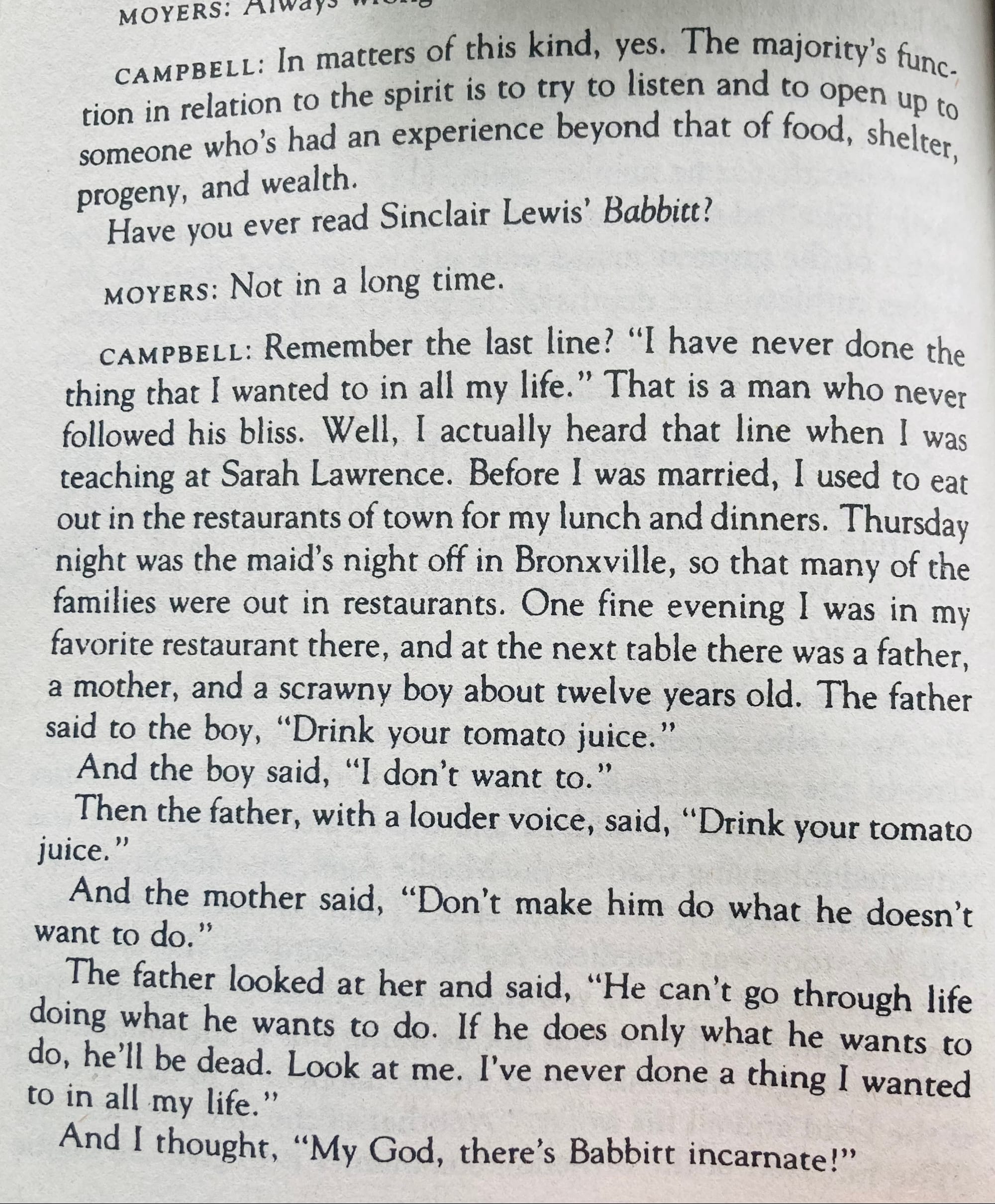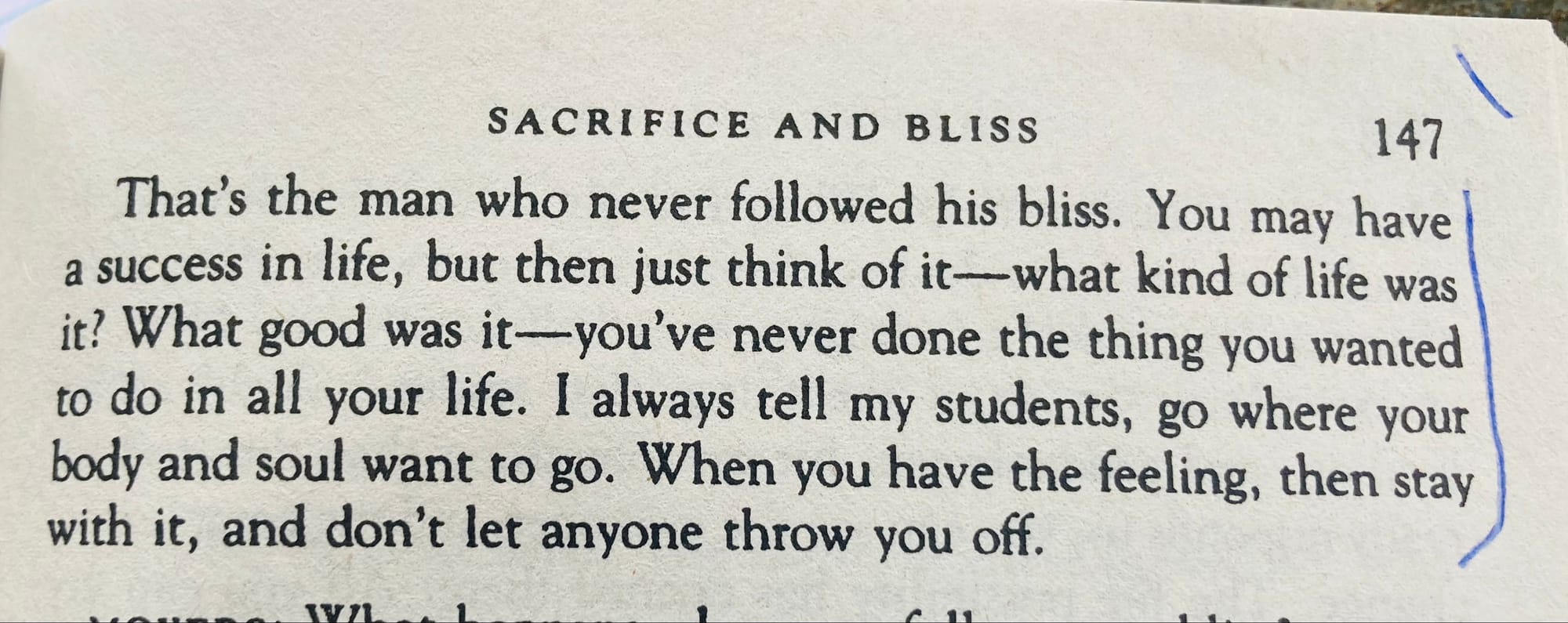Lines that move me. A list that's always expanding. Kind of like my waistline.
"There are times that one treasures for all one's life, and such times are burned clearly and sharply on the material of total recall. I felt very fortunate that morning."
-John Steinbeck, Travels with Charley in Search of America (1997)
"In Spanish there is a word for which I can't find a counter-word in English. It is the verb vacilar, present participle vacilando. It does not mean vacillating at all. If one is vacilando, he is going somewhere but doesn't greatly care whether or not he gets there, although he has direction."
-John Steinbeck, Travels with Charley in Search of America (1997)
"'Never make a decision just to get something done,' he says."
-John McPhee, quoting Frank L. Boyden, "The Headmaster," as reprinted in The John McPhee Reader (1992)
"Writing a first draft is painful work for any writer, whether it moves like lightning or like glue. McPhee spends twelve-hour stints at his office, not writing constantly, but 'concentrating' and distilling his research into prose. Some authors overwrite and later boil down; he culls before ever typing a phrase. He likens this method to the sport of curling, where great effort is spent sweeping the ice clean to advance each shot. With writing comes the need for endless decisions, mostly on what not to say, what to eliminate. The process is nerve-racking and lonely."
-William H. Howarth, "Introduction," The John McPhee Reader (1992)
"Contrary to the popular image, the Stoics do not suggest that people can or should become unfeeling blocks of stone. All humans will experience what Seneca calls ‘first movements.’ These are when we are moved by some experience, and we might feel nervous, shocked, excited or scared, or we might even cry. All these are quite natural reactions; they are physiological responses of the body, but not emotions in the Stoic sense of the word. Someone who is upset and momentarily contemplates vengeance, but does not act on it, is not angry according to Seneca, because he remains in control. To be momentarily scared of something, but then remain firm, is not the emotion of fear, either. For these ‘first movements’ to become emotions proper would require the mind judging that something terrible has happened and then acting on it. As Seneca puts it, ‘fear involves flight, anger involves assault.’
There are thus three stages to the process, as Seneca suggests: first, an involuntary first movement, which is a natural physiological reaction out of our control; second, a judgment in response to the experience, which is within our control; third, an emotion that, once created, is out of our control. Once the emotion is there, there is nothing we can do but wait for it to subside.”
-John Sellars, Lessons in Stoicism: What Ancient Philosophers Teach Us About How to Live (2019)
"Don't try to make your own rules."
-Epictetus, Manual for Living: A New Interpretation by Sharon Lebell (1994)
"Why are they so mean? It's just advertising."
-Bob Cabana, played by Jerry Seinfeld, speaking to Don Draper (John Hamm) and Roger Sterling (John Slattery), Unfrosted (2024)
"'But there's no remaking reality,' he said, softly, rubbing [his daughter's] back and stroking her hair and rocking her gently in his arms. 'Just take it as it comes. Hold your ground and take it as it comes. There's no other way.'"
-Philip Roth, Everyman (2006)
"Don’t be afraid of verbal abuse or criticism.
“Only the morally weak feel compelled to defend or explain themselves to others.
Let the quality of your deeds speak on your behalf. We can’t control the impressions others form about us, and the effort to do so only debases our character.
“So if anyone should tell you that a particular person has spoken critically of you, don’t bother with excuses or defenses. Just smile and reply, ‘I guess that person doesn’t know about all my other faults. Otherwise he wouldn’t have mentioned only these.’ ”
-Epictetus, Manual for Living: A New Interpretation by Sharon Lebell (1994)
"Men of few words are the best men."
-Shakespeare, Henry V (Act 3, Scene 2), as delivered by Boy during a production at the Guthrie Theater, May 12, 2024
"The ripest fruit first falls."
-Shakespeare, Richard II (Act 2, Scene 1), as delivered by King Richard during a production at the Guthrie Theater, April 27, 2024


-Joseph Campbell with Bill Moyers, The Power of Myth, pp. 146-147 (1991)
"she drives into the parking lot while
I am leaning up against the fender of my car.
she's drunk and her eyes are wet with tears:
'you son of a bitch, you fucked me when you
didn't want to, you told me to keep phoning
you, you told me to move closer into town,
then you told me to leave you alone.
"It's all quite dramatic and I enjoy it.
'sure, well, what do you want?'
"'I want to talk to you, I want to go to your
place and talk to you ...'
"'I'm with somebody now, she's in getting a
sandwich.'
"'I want to talk to you ... it takes a while
to get over things. I need more time.'
"'sure. wait until she comes out. We're not
inhuman. we'll all have a drink together.'
"'shit,' she says, 'oh shit!'"
-Charles Bukowski, "Turnabout," The Pleasures of the Damned (2007)
"We were not born to sue, but to command."
-Shakespeare, Richard II (Act 1, Scene 1), as delivered by King Richard during a production at the Guthrie Theater, April 27, 2024
The need to "police group members' beliefs so as to ferret out deviants, along with the fact that the expression of heretical opinion may be the best available evidence of deviance, creates the possibility for what I call self-censorship: members whose beliefs are sound but who nevertheless differ from some aspect of communal wisdom are compelled by a fear of ostracism to avoid the candid expression of their opinions."
-Glenn Loury, “Self-Censorship in Public Discourse: A Theory of 'Political Correctness' and Related Phenomena,” Rationality and Society, Vol. 6, No. 4, p. 430 (October 1994)

-Ernest Hemingway, The Sun Also Rises (1926)
“To care about the world you must love at least a piece of it. One person, perhaps even a landscape, might be enough.”
-Susan Neiman, Left is Not Woke (2023)

-Steven Wright, Harold, p. 216 (2023)
“[America] is the first nation in the world that was ever established on the basis of reason instead of simply warfare.”
-Joseph Campbell, The Power of Myth, p. 31 (1991)
“Empty vessels make the loudest sound.”
-Shakespeare, Henry V (Act 4, Scene 4), as delivered by Boy during a production at the Guthrie Theater, May 12, 2024

-A fictional Carl Sagan, speaking to the 7-year-old title character of the novel Harold, p. 228 (2023) by Steven Wright
"... it's another thing you think you can't do. And maybe you can, maybe you can't. That's irrelevant. That's irrelevant. You can or you can't. What's relevant is that you dive in. That's relevant. Because however it comes out is worth it. Failure is just as worth it as success."
Why?
"Because everything contains a reward of some kind. It's your job to find it."
-Jerry Seinfeld, "The Blocks with Neal Brennan"
Cars are "the poor-man's miracle."
-Charles Bukowski, "Eulogy," The Pleasures of the Damned (2007)
"... as small men rant at things they cannot do."
-Charles Bukowski, "A Poem is a City," The Pleasures of the Damned (2007)
